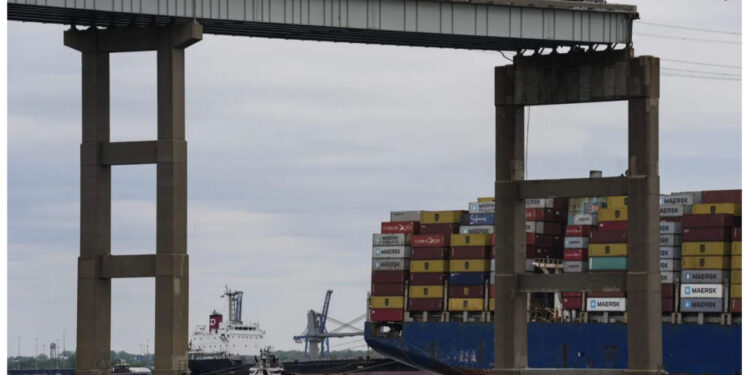On Thursday, a cargo ship passed through a new deep-water passage in Baltimore, the first to do so since the Francis Scott Key Bridge collapsed last month, shutting down most activity in the port.
According to The Associated Press, the Balsa 94, a bulk carrier flying the Panama flag, set sail on Thursday morning through a newly constructed 35-foot channel. The vessel is en route to St. John, Canada, with an anticipated arrival on Monday.
The collapse of the port has caused a complete stop in maritime traffic, requiring extensive efforts from crews to clean up the aftermath. Among the five ships that were previously stranded, the Balsa can now navigate through the newly established temporary channel.
On Thursday morning, a new 35-foot channel was opened, marking the fourth temporary channel constructed to navigate around the damage. The previous channels have mainly served as pathways for vessels participating in the cleanup operation.
The U.S. Coast Guard officials have announced that the most recent temporary channel will stay open until the beginning of next week, specifically Monday or Tuesday.
Earlier this week, the city of Baltimore filed court documents, arguing that the owner and operator of the Dali should not be allowed to evade liability. The city claimed that the vessel was in an “unseaworthy” condition when it departed from the Baltimore port last month. Furthermore, the city alleged that Grace Ocean Private, the owner of the Dali, and the ship’s operator, Synergy Marine Group, displayed gross negligence and potentially criminal behavior.
The attorneys emphasized that cargo ships had been successfully navigating under the Key Bridge for over forty years, making countless trips without any mishaps. They argued that there was no reason for the events of March 26, 2024, to disrupt this longstanding record of safety.
Grace Ocean and Synergy wasted no time in seeking legal protection following the collapse. They swiftly approached a federal court, requesting a cap on their potential liability at approximately $43.6 million.
The city argues that the liability cannot currently be limited without a trial, as it believes the companies’ “failures” need to be demonstrated.










